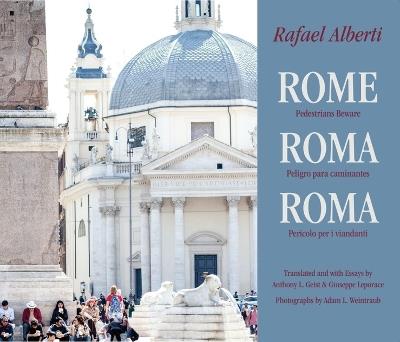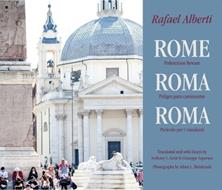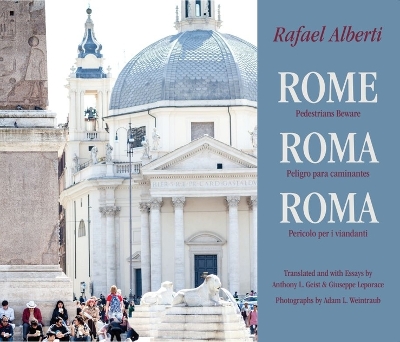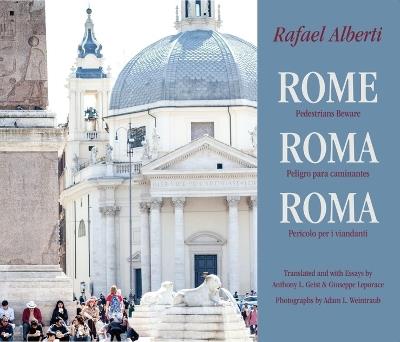Rome: Pedestrians Beware
Rafael Alberti’s collection of poems set in vibrant Rome, his home in exile from Spain. After his long exile in France and Argentina following the Spanish Civil War, Rafael Alberti’s final home in exile was Rome, where he wrote Roma: Peligro para caminantes (Rome: Pedestrians Beware). There, Romulus and Remus sneak down to the Tiber to suckle on feral cats, a jack of all trades pisses on the poet’s shoes, whistling as he walks away, and in the Campo de’ Fiori the poet compares sonnets with the wandering spirit of Giuseppe Gioachino Belli, all in the shadow of the glory of Rome’s imperial ruins. Two suites of sonnets open and close the book, while in between, Alberti displays masterful poems in metered and free verse, rhyming couplets, and a numbered series of short poems. The blending of classical tradition with post-modern echoes the darkness and luminosity that exist within the poems, tinged with longing, nostalgia, love, as well as hope. In the end, the Eternal City is a refuge for Alberti:”I left for you all that I once held dear. / Oh Rome, my sorrow pleads, hold out your hands / and give me everything I left for you.” This unique trilingual edition features exquisite and nuanced translations in English and Italian from the original Spanish by Anthony Geist and Giuseppe Leporace alongside visually evocative photographs of Rome by Adam Weintraub. Readers will want to take this poetic walk in Rome since what sometimes elicits caution, an aspect of danger, also becomes a destination for discovery.
-
Autore:
-
Traduttore:
-
Editore:
-
Anno:2025
-
Rilegatura:Paperback / softback
-
Pagine:200 p.
Le schede prodotto sono aggiornate in conformità al Regolamento UE 988/2023. Laddove ci fossero taluni dati non disponibili per ragioni indipendenti da Feltrinelli, vi informiamo che stiamo compiendo ogni ragionevole sforzo per inserirli. Vi invitiamo a controllare periodicamente il sito www.lafeltrinelli.it per eventuali novità e aggiornamenti.
Per le vendite di prodotti da terze parti, ciascun venditore si assume la piena e diretta responsabilità per la commercializzazione del prodotto e per la sua conformità al Regolamento UE 988/2023, nonché alle normative nazionali ed europee vigenti.
Per informazioni sulla sicurezza dei prodotti, contattare productsafety@feltrinelli.it




